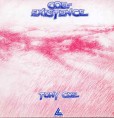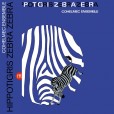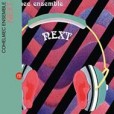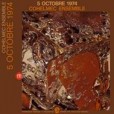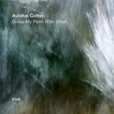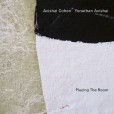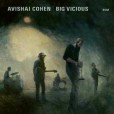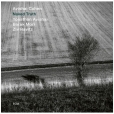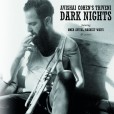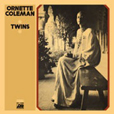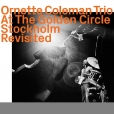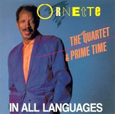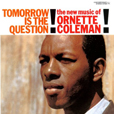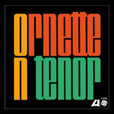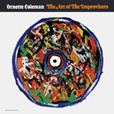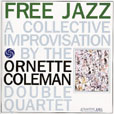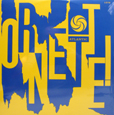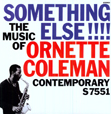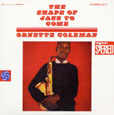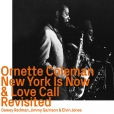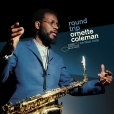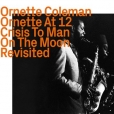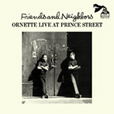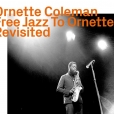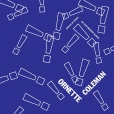Your basket is empty

COH as in Jean Cohen (saxophones), EL as in Dominique Elbaz (piano) and MEC as in the brothers François and Jean-Louis Méchali (bass and drums) — joined by the American clarinettist and flautist Evan Chandlee for this debut album, originally released by Saravah in 1969.
“We wanted to avoid that kind of ‘free’ which is characterized by pounding drumming and a saxophonist freaking out in the high register, that type of music that kicks off suddenly then stops without us being able to sense the motivation. There is never any difference in intensity: nothing is destroyed, nothing is created, nothing is elaborated, nothing is questioned — when, even on the simple level of sound, there is so much that can be done.”
With French roots running back through the music of Jef Gilson, and pitched at the time somewhere between ESP and Actuel/BYG, with full-blooded nods to the likes of Cecil Taylor, John Coltrane and Walt Dickerson, this is expert, exuberant music-making, searching out its own way.
Ten tracks, even-handedly improvised and composed, beautifully played; intense and free-spirited but always engaging, attentive and communicative.
Top-notch sound; heavyweight gatefold sleeve with obi-strip; twelve-page booklet.
Their second LP, from 1971, with guitarist Joseph Dejean from the Full Moon Ensemble propelling the music forwards, as pianist Dominique Elbaz stands down.
The sound swells and contracts dramatically across the eleven tracks and interludes, with fresh senses of break-down and silence, and new intimacy. There is some Steve Lacy to its fierce repetition of key phrases; some Sharrock to Dejean; sparing experimentation with effects; portions of central African polyphony (Boa Constrictor), summer-breeze funk (Desert Angel), and plenty of characteristically rootsy prog and cosmic skronk.
A live recording of a concert given at the Theatre de l’Est Parisien.
Stretched-out but closely textured and highly evocative, more bluesy than before, and brooding with Milesian intensity.
There is a strong spirituality to all of Cohelmec’s music ... but here they go deep.
Try Teotihuacan. Killer.
The outstanding trumpeter with Triveni cohorts Omer Avital and Nasheet Waits… also featuring his sister Anat brilliantly playing clarinet, and vocalist Keren Ann ravishingly invoking Chet Baker. A Mingus, a Strayhorn, Frank Foster’s Shiny Stockings and an Ornette tribute, in amongst the originals.
With Scott La Faro (bass), Ed Blackwell (drums), Don Cherry (trumpet), Charlie Haden (bass), Billy Higgins (drums); also Eric Dolphy (bass clarinet) and Freddie Hubbard (trumpet).
Original copies of the 1987 double-LP: OC on one record with Don Cherry, Charlie Haden and Billy Higgins; on the other with Prime Time… Bern Nix, Denardo, Jamaaladeen Tacuma and co.
Already his own man in this 1958 recording debut, on plastic alto, with Don Cherry and Billy Higgins in the line-up from the get-go. Great OC tunes, bluesy and wonky; not really something else quite yet. DC’s ace.
Craft LP.
While a decent reissue of these two somewhat lesser known albums is certainly welcome, this disc’s main attraction is the inclusion of both sides of an extremely scarce 7” single recorded in Jul 1969 and (for reasons unclear) released by Impulse! in France only. Written to commemorate the Apollo 11 US moon landing that same month, Man On The Moon achieves a suitably futuristic vibe thanks to the contribution of Dr Emmanuel Ghent, a psychologist and pioneer of computer-generated electronic music, here credited with playing ‘electronic devices’.
As drummer Ed Blackwell clatters out an urgent, armour plated free-bop sprint, Ghent’s weird robo-chatters and space whispers meld with Ornette’s alto. Redman’s tenor and Cherry’s trumpet for three frantic minutes. The B side Growing Up is a two minute free ballad with Blackwell lurching around the kit, Haden sawing out a mournful arco and Ornette leading a sweetly wistful call, answered by three-horned responses. A rare cut from the jukebox of your dreams.
This is a jubilant, uplifting romp.
Recorded in 1970 at his large loft space in downtown New York, with Ornette playing trumpet and violin as well as saxophone, alongside Dewey Redman, Ed Blackwell, and Charlie Haden (and friends and neighbours sometimes singing along).
Five lovely tunes — pure OC blues — featuring terrific alto-playing, and Blackwell in a funkily rambunctious party mood.
His first two, liberating, aching, rawly beautiful LPs: Something Else!!!! The Music of Ornette Coleman from 1958, and Tomorrow Is the Question! The New Music of Ornette Coleman, from 1959.
With Don Cherry, Walter Norris, bassist Don Payne, Billy Higgins; Don Cherry, Shelly Manne, Percy Heath / Red Mitchell.
